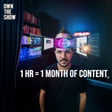
Leading from Identity, Not Performance
If your confidence is based on your performance, you’ll always be insecure — because your next outcome is never guaranteed. In this episode, Ron Minatrea shares how a subtle mindset shift can change everything about the way you lead and live. You’ll hear his own story of tying identity to success, the crash that followed, and the breakthrough that came when he learned to lead from identity instead of performance.
You’ll discover how to uncover your unique wiring — your vocational DNA — and learn why confidence built on who you are will always outperform confidence based on what you do.
You’ll learn:
- Why performance-based confidence is fragile and unsustainable
- How to uncover the traits that make your leadership unique
- What it means to live and lead with authentic alignment
- How your most valuable contribution flows from your signature blend of strengths
Key Idea:
Your performance doesn’t define your value — your identity drives your performance.
Call to Action:
Reflect on your own unique wiring this week. Where do your beliefs, behaviors, and strengths align — and where do they feel out of sync? When you change how you think about your value, you change how you lead and how you live.
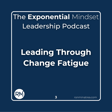
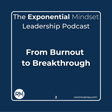
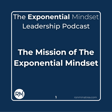
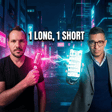


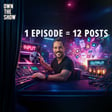
![The "Dream 100" Execution Plan [Google Sheet System] image](https://media.zencastr.com/cdn-cgi/image/width=112,quality=85/image-files/630c9f06819f8b3dba5fa460/fcd89374-76a4-4e58-a2e3-2bb7ddda4364.png)

